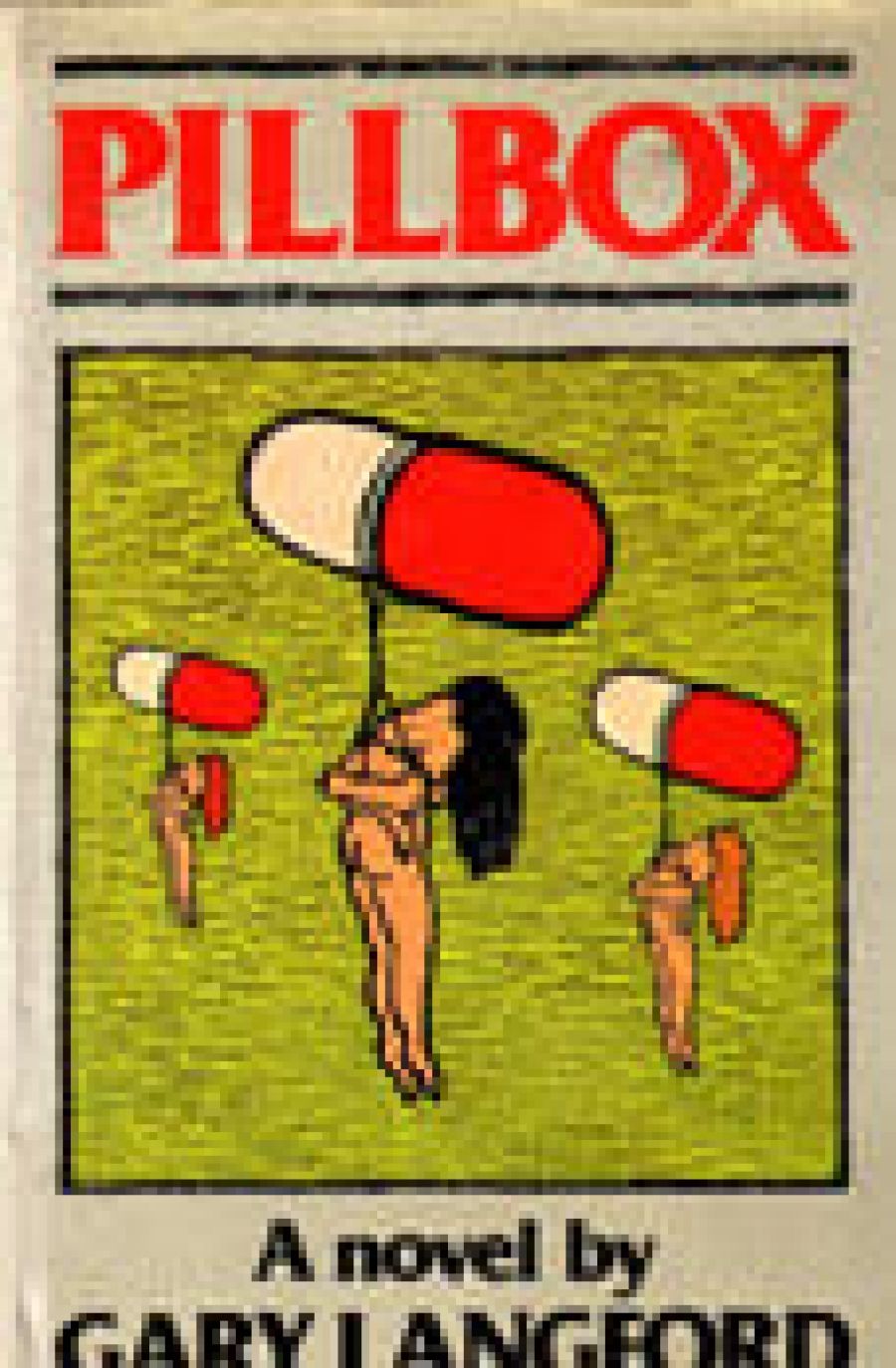
- Free Article: No
- Contents Category: Fiction
- Review Article: Yes
- Article Title: Doctor Knows Worst
- Article Subtitle: Of pills and pain
- Online Only: No
- Custom Highlight Text:
At times I was delighted by this novel and at others was absolutely irritated. It is a novel which swerves between metaphors of wit and wisdom and crass punning. It is interesting structurally and it is crudely constructed. It is a novel of commitment, keen observation and loving sympathy. In some ways it is a novel of simple faith reminiscent of the Christian novels I was given as Sunday School awards which emphasised salvation through acceptance of a life of no smoking, no drinking, no dancing and certainly no going out with those who did them. But I’m putting this too strongly, for Gary Langford is not as simple minded as to attack modern medicine as the invention of the devil and doctors as the devil’s disciples. But the central thesis is that the protagonist, Mary Stewart, is the victim of our faith that the doctor knows best.
- Book 1 Title: Pillbox
- Book 1 Biblio: Macmillan, $19.95, 228 pp
- Book 1 Cover Small (400 x 600):

- Book 1 Cover (800 x 1200):

Langford examines the failure of flesh and marriage and shows just how closely the two are related in maintaining a heathy personality and family life. As Mary. Stewart’s illness changes her from a cheerful; witty and independent woman into a whining, lethargic invalid, her husband withdraws into a world of cryptic crossword puzzles as an escape from the incomprehensible problem of a wife whose sickness appears to have no physical cause. The doctor and the husband see it as a problem of the mind; after all, her sister and mother went that way. Mary’s children have their own problems - problems of maintaining relationships even without the problem of health.
The novel’s fragmented structure, its achronological sequences and its changes from comfortable omniscient author to hand-dusting now-let-me-tell-you-about-this objective chronicler, serves to create a feeling of disintegration. Nevertheless I think this is due to disorganisation rather than design. If not, there are sections which jar aesthetically. And I don’t like introductions like this one. ‘Re-enter the daughter and youngest son into the story.’
Langford provides a miracle working solution for Mary’s heart problem by having her younger children send her off to a homeopath (‘He’s a real doctor; said Jenny.’) who listens for two hours while Mary unburdens her irritation and distrust and frustration. He takes her off all her drugs. According to Lansford, it is the family doctor’s fault that this woman’s health has suffered:
Mary Stewart was never a well woman, but indifference and mistreatment changed her into an almost incurably sick one. All those palpitations of the heart. Neomercazole was used to control the thyroid gland because it was putting out too many hormones. The condition was checked but four years later she was put back on the drug and this time left on it.
But the specialist who treats her what seems ‘like heart disease’ doubles the neomercazole ‘and down she went as if king hit. Snap.’ The novel has a message. Langford appears to be convinced that it is easy to heal oneself once the toxicity is removed from the body. ‘He (the homeopath) had told her she was not a well woman and it would take her two or three years to clean out her system, mercury had built up in her blood, and was poisoning her.’ I cannot judge this. But it sounds too easy even given the two or three years. However, the novel has much to offer. And an examination of faith in doctors and modern medicine may be as relevant as an examination into anything based on faith. Unfortunately, I think in this area, Langford is somewhat simplistic. He is very good, however, on the tone, the intensity, the uncertainty and the emotional gymnastics which are a part of family exchanges.
Mum loves being a grandmother. Nobody likes getting old you fool, sighed Lyn.
You don’t have a mortgage on truth, glared Neil.
She became exasperated with his obtuseness and snapped, on mine I do! He didn’t have an answer for that.
I hate the way. we end up yelling at each other, he said, can’t we try to get along?
We do try, she said, you do, I do. It’s just not enough Neil.
This is a novel of sympathy and optimism despite the portrayal of relationships which have become threadbare from constant friction. It is a novel which reveals an intimate understanding of human behaviour, in its youth and in its age. And Langford is on Mary Stewart’s side, as woman and victim of the pillbox.


Comments powered by CComment